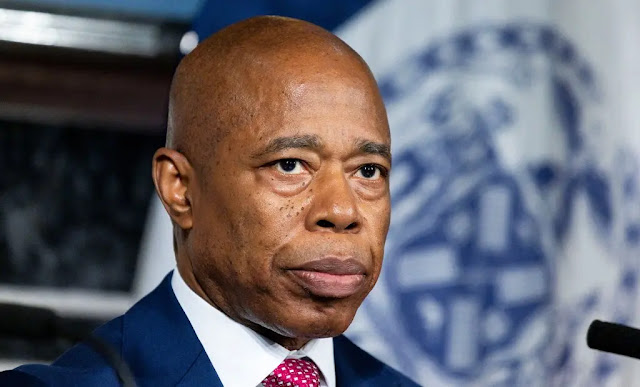Biden's Immigration Policy Granting Temporary Legal Status Faces Legal Challenge.
A court battle looms over the Biden administration's immigration policy, which grants temporary legal status to thousands of individuals, as a consortium of Republican-led states questions its legality.
The Humanitarian Parole Initiative has provided an opportunity for numerous individuals hailing from Latin America and the Caribbean to temporarily reside and engage in employment within the United States.
A policy enacted by the Biden administration, permitting people from Latin American and Caribbean nations to temporarily live and work in the United States, is set to be scrutinized in court on Thursday. A coalition of states with Republican leanings is contesting the policy's legal standing.
The Humanitarian Parole Initiative, unveiled in January, sanctions the admission of up to 30,000 individuals monthly from Cuba, Haiti, Nicaragua, and Venezuela into the U.S. This admission is based on individual circumstances that necessitate urgent humanitarian assistance or offer significant public benefits. The initiative mandates a case-by-case evaluation process, where migrants can stay in the U.S. for a maximum of two years. Prospective participants must complete an online application, secure a financial sponsor, and undergo rigorous background and security screenings.
As per administration records, nearly 160,000 individuals from Cuba, Haiti, Nicaragua, and Venezuela entered the U.S. through the parole program by the end of June.
The legality of the policy has been contested by 21 states with Republican affiliations. In an amended complaint filed in February, they denounce it as "unlawful," asserting that President Joe Biden has effectively introduced a novel visa program without adhering to congressional legislative protocols.
District Judge Drew Tipton, an appointee of the Trump administration presiding in Victoria, Texas, will preside over the proceedings, which will assess the legal validity of the program.
In April, Tipton granted permission for a group of seven U.S. citizens who are acting as sponsors or applicants within the program to join the legal proceedings in support of the initiative. Represented by organizations advocating for immigrant rights, including the Justice Action Center, RAICES, and the Center for Immigration Law and Policy at UCLA School of Law, these individuals are intervening to defend the program.
One such sponsor is Eric Sype, age 30, who is supporting a Nicaraguan individual he considers part of his "chosen family." Their connection dates back to 2014, when they met during Sype's college years. Sype recounts that the man, now settled with his family in a hurricane-ravaged coastal area, faces both environmental challenges and political turmoil in Nicaragua since 2018. Sype believes that the parole program is crucial for his friend's family, offering them safety and economic prospects.
Sype, who recently welcomed his Nicaraguan friend to the U.S., shared that the man aims to contribute through agricultural work on a relative's farm to provide for his family. Sype expresses concern over the potential discontinuation of the program, considering it a beacon of hope within a broader immigration system that demands reform.
The Humanitarian Parole Initiative constitutes an essential facet of the Biden administration's efforts to expand legal pathways for individuals escaping political and economic instability, including those displaced due to Russia's intervention in Ukraine.
Distinct from the Republican-led challenge in Texas, the "Uniting for Ukraine" parole program has facilitated entry for over 100,000 Ukrainians. This initiative, intended to assist Ukraine following the Russian invasion, remains unimpeded by the legal contestation.
Blas Nuñez-Neto, Assistant Secretary for Border and Immigration Policy at the DHS, highlighted the administration's focus on enhancing lawful avenues for immigration, which has yielded a notable reduction in border crossings. Nuñez-Neto emphasized the goal of encouraging migrants to opt for safe and orderly pathways into the United States.
Esther Sung, Legal Director of the Justice Action Center, underscored that the individuals represented in the case demonstrate the positive motivations behind participating in the parole program, along with its favorable outcomes. Among them is a doctor seeking to sponsor the mother of a young woman facing serious medical issues necessitating surgery.
The doctor articulated her apprehension that termination of the program before her mother's arrival could jeopardize the young woman's access to life-saving medical intervention.
Sung underscored the importance of this program within the current immigration landscape and the need to protect it.
The complaint lodged by the 21 states challenging the parole program for individuals from Cuba, Haiti, Nicaragua, and Venezuela contends that it exceeds the federal government's "statutory parole authority" and fails to satisfy criteria demanding usage "solely on a case-by-case basis for urgent humanitarian reasons or significant public benefit."
The states also assert that the policy will strain their resources, leading to irreparable harm.
The Attorney General's office in Texas, which initiated the lawsuit against the policy, and the Department of Homeland Security are yet to provide comments on the lawsuit and the upcoming hearing.






Commentaires
Enregistrer un commentaire